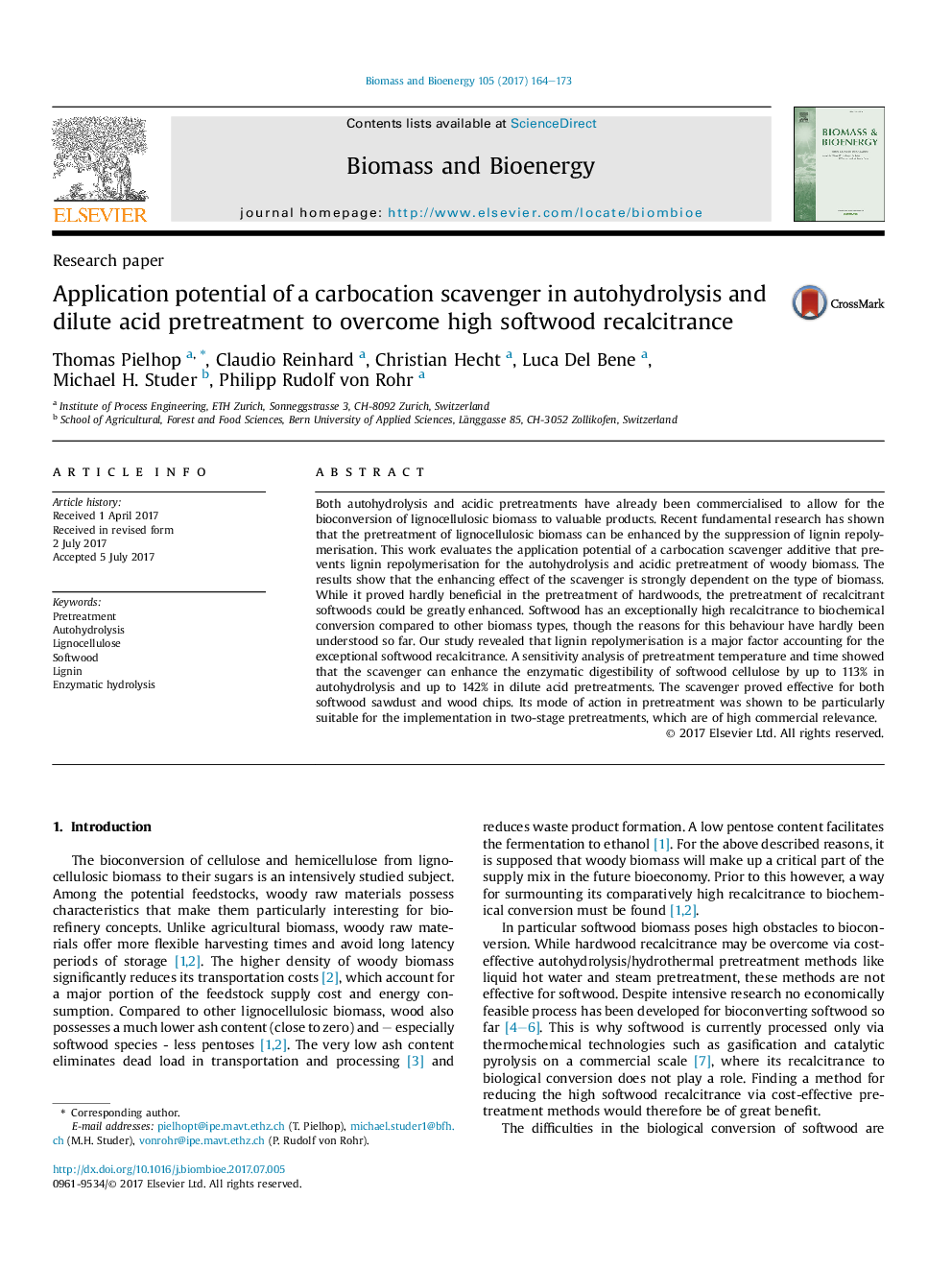| Article ID | Journal | Published Year | Pages | File Type |
|---|---|---|---|---|
| 4996155 | Biomass and Bioenergy | 2017 | 10 Pages |
Abstract
Both autohydrolysis and acidic pretreatments have already been commercialised to allow for the bioconversion of lignocellulosic biomass to valuable products. Recent fundamental research has shown that the pretreatment of lignocellulosic biomass can be enhanced by the suppression of lignin repolymerisation. This work evaluates the application potential of a carbocation scavenger additive that prevents lignin repolymerisation for the autohydrolysis and acidic pretreatment of woody biomass. The results show that the enhancing effect of the scavenger is strongly dependent on the type of biomass. While it proved hardly beneficial in the pretreatment of hardwoods, the pretreatment of recalcitrant softwoods could be greatly enhanced. Softwood has an exceptionally high recalcitrance to biochemical conversion compared to other biomass types, though the reasons for this behaviour have hardly been understood so far. Our study revealed that lignin repolymerisation is a major factor accounting for the exceptional softwood recalcitrance. A sensitivity analysis of pretreatment temperature and time showed that the scavenger can enhance the enzymatic digestibility of softwood cellulose by up to 113% in autohydrolysis and up to 142% in dilute acid pretreatments. The scavenger proved effective for both softwood sawdust and wood chips. Its mode of action in pretreatment was shown to be particularly suitable for the implementation in two-stage pretreatments, which are of high commercial relevance.
Related Topics
Physical Sciences and Engineering
Chemical Engineering
Process Chemistry and Technology
Authors
Thomas Pielhop, Claudio Reinhard, Christian Hecht, Luca Del Bene, Michael H. Studer, Philipp Rudolf von Rohr,
